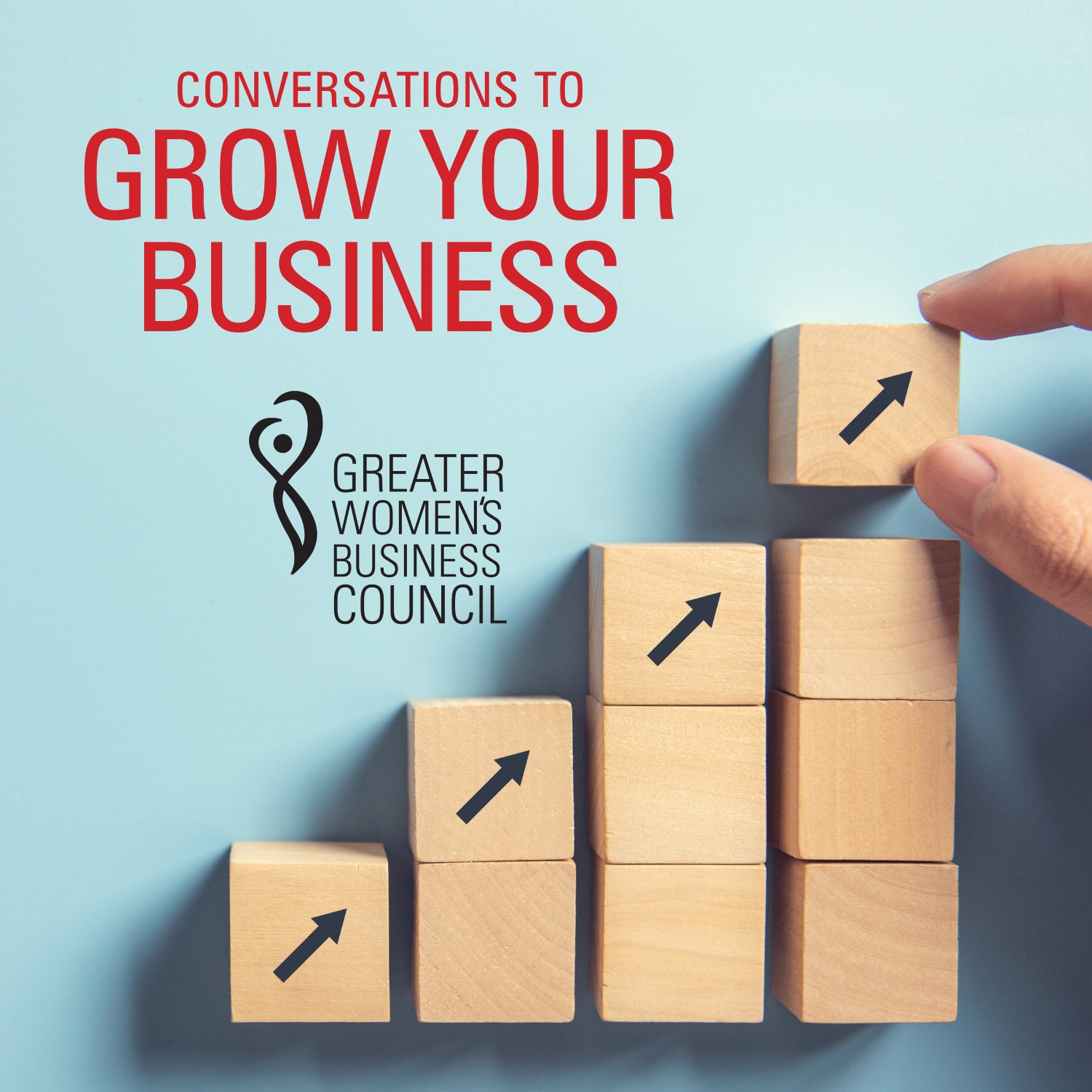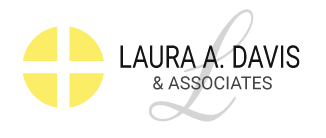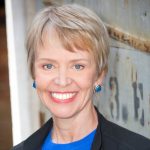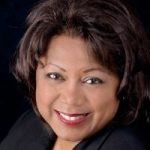

 Laura A. Davis is the CEO and Founder of Laura A. Davis & Associates, Inc., an Atlanta-based transformational executive coaching, leadership and team development, and DiSC assessment training firm.
Laura A. Davis is the CEO and Founder of Laura A. Davis & Associates, Inc., an Atlanta-based transformational executive coaching, leadership and team development, and DiSC assessment training firm.
Since 1998, Laura has been coaching leaders at all levels of Fortune 500 and mid-sized companies to become more emotionally intelligent, agile, and aware of their role in creating a healthy, engaged corporate culture. Organizations must become agile in today’s world of disruption and agile organizations are made up of agile, emotionally intelligent people.
Laura and her associates also focus on assisting teams within organizations to become more cohesive by building cultures of high trust, productivity, accountability, and collective results. Laura and her team offer leading-edge mindsets, skillsets, and toolsets needed to create high performance and inspired success.
Prior to starting her business, Laura held both line and staff marketing management positions at Exxon, Equifax, and UPS. She was an Adjunct Professor of Business Studies at Mercer University and holds an MBA in Marketing from Emory University. Laura earned the coveted Master Certified Coaching designation through the ICF in 1998 and maintains that credential through her ongoing study and dedication to the profession.
Her ongoing thought leadership is demonstrated in the talks she gives at professional industry conferences around the country. She is a contributing author to “A Guide to Getting It: Self-Esteem” and has published articles in leading industry publications such as Choice magazine, ATD newsletters, and more. She has appeared on “Good Day Atlanta” and numerous internet radio shows to talk about emerging organizational leadership best practices. Laura A. Davis and Associates, Inc. is also a certified woman-owned business through WBENC.
Connect with Laura on LinkedIn and Facebook.
Show Transcript
Intro: [00:00:04] Broadcasting live from the Business RadioX studios in Atlanta, Georgia, it’s time for GWBC Radio’s Open for Business. Now, here’s your host.
Lee Kantor: [00:00:18] Lee Kantor here. Another episode of GWBC Radio’s Open for Business. And this is going to be a fun one. I have with me today Laura A. Davis. And she’s with Laura A. Davis & Associates. Welcome, Laura.
Laura A. Davis: [00:00:31] Thank you so much. It’s a joy to be here this afternoon.
Lee Kantor: [00:00:34] Well, before we get too far into things, tell us about your work. Who do you serve, and what do you do?
Laura A. Davis: [00:00:41] Absolutely, sure. We’ve been in business now since 1995. So, that’s quite a long time, have seen lots of changes. And today, our work is more important than ever. What we really do is help leader be more emotionally intelligent and more agile in today’s world. And we certainly can do that virtually. And then, we really focus on building cohesive teams. People are on teams at least 60% of the time or more these days. And now, the fact that they’re operating virtually in remote ways, it makes it even more challenging. But basically, everything we do is helping organizations be healthy, as well as smart strategically that’s really developing the right kind of culture to really be productive and effective in today’s world work.
Lee Kantor: [00:01:34] Now that a lot of people are working remotely rather than face to face, are there different challenges when you’re trying to kind of be empathetic and be emotionally available?
Laura A. Davis: [00:01:48] Yes, that’s a great question. Even before the events of the past few months, there have been some macro trends that have been driving virtual collaboration. Technology, certainly, is requiring us to change the way that we work. It puts pressure on all of us to keep up. It’s interesting because there’s so much global collaboration and a flattening of organizational structures. People are now working on teams with people from different countries, from different cultures, operating in different time zones. So, that’s more complex. They’re dealing with a more diverse workforce.
Laura A. Davis: [00:02:28] And then, I mentioned the changes in the organizational structure, we’re really moving away from traditional hierarchies to more of a matrix networked kind of organizational structure. And so, that really requires a lot of communication, collaboration and speed. And now that we’re all working remotely, we really have to be intentional about being more human than ever, really thinking about how to communicate. You mentioned being more empathetic. It’s interesting because we do executive coach leaders and mid-level leaders, and we do training and corporate culture change. And these leaders, many times, are used to driving for results. And sometimes, being empathetic is a challenge. So, we work on that mindset and skillset quite a bit, actually.
Lee Kantor: [00:03:27] So, now, is there a different kind of challenge when you’re coaching client over video or over the phone as opposed to face to face where you can kind of judge by body language, maybe they’re leaning in, leaning backwards, arms crossed, like things that maybe are different cues you’re getting through the phone or through video than you would be in person?
Laura A. Davis: [00:03:57] Yes. Yeah, it’s a great question. The good news is Zoom and other platforms allow you to see people. And my team and I had them working virtually as coaches for many, many years. So, this isn’t new to us. There are still many things you can pick up in someone’s tone of voice. And actually, there are some advantages to coaching and working remotely in that you don’t have to deal with traffic, or getting in and out of the building, and that kind of thing. So, it really requires a heightened focus.
Laura A. Davis: [00:04:32] Now, my team and myself, we’ve been doing this a long time, but to answer your question more directly, I think, many times, the leaders are now challenged with picking up on these nuances when they’re working with their teams. And one of the things we coach people to do is make sure that they do check in with people personally and allow time for that. This is not the time to be overly efficient. It’s the time to really be exceedingly human and recognize that people have all of these new distractions now with pets at home and children at home, and maybe they don’t have an office set up that is conducive to really working effectively. It varies because some of my clients have been virtual for many years, and others, this is a brand-new work environment for them. So, it really spans a broad spectrum there.
Lee Kantor: [00:05:30] Now, how are you counselling your clients when it comes to this level of uncertainty when a lot of the employees maybe are looking to the leader to have a game plan or to have some sort of roadmap for what’s ahead? And in today’s world, it’s obvious everybody’s roadmap’s out the window at this point. So, the leader is going to be more vulnerable and has to maybe show emotions in a way that’s different than they have in the past.
Laura A. Davis: [00:06:01] Yes. I’m so glad you mentioned that because one of the key skill sets that’s always been needed that more than ever before is is building trust. And you mentioned vulnerability. And I work quite a bit with program, an assessment-based learning experience that’s called the Five Behaviors of a Cohesive Team. And it’s based on the book, The Five Dysfunctions of a Team, written by Pat Lencioni. And I’m an authorized partner for Wiley. And Wiley only goes to market through authorized partners like myself – independent business owners, coaches, trainers, consultants, et cetera. And so, we spend a lot of time helping leaders and teams learn to build trust quickly.
Laura A. Davis: [00:06:46] And one of the key things is to be vulnerable, and be willing to admit when they don’t have all the answers, and being willing to admit if they need help. And that’s not something we’ve been taught as children. We were taught to be team members by just being nice or we should know that kind of culture. And so, it’s common that people tend to want to hide their flaws, and not challenge the status quo, and try and achieve consensus. And a leader, sometimes, because they might think it appears stronger to feel like they know the answers, can come across as being insensitive and out of touch.
Laura A. Davis: [00:07:35] So, what I coach people to do is say what they know. We’re going to work with them to develop a rallying cry and a work motto, basically, for the team to get something accomplished. And everyone participates in that, so everybody has a voice which really contributes to buy-in and clarity. But you can’t pretend you know all the answers, and you need to be willing to say, “We don’t know, but you’re going to have a voice, and we’re all going to co create this together. And together, we’re going to be focused on this goal and not let ourselves get overly distracted by trying to predict the future.”
Lee Kantor: [00:08:23] Now, how are you helping your clients navigate this uncertainty in terms of innovation? Some people’s business plans are out the window and that they can’t do – even if they’d like to, they couldn’t do what they used to do. And some of them, I’m talking to a lot of people, some of them are saying, “I’m going to just wait this out. And then, I’ll pop my head out a few months, and then see what’s what.” And then, others are like, “Look, we’re going to figure this out. Yesterday, we couldn’t do ABC. But today, we can do DEF. And then, we’re going to just try to find the market for that.”
Laura A. Davis: [00:08:59] Exactly, yes. Well, the latter is obviously preferable. And I think it’s a very natural reaction to want to hunker down and sort of hide, but that’s not productive. And it is much more productive to be looking for the opportunity. And while that sounds trite almost, there will be amazing opportunities for innovation and opportunities to work in brand-new ways that we can’t necessarily envision yet. And there are a lot of other macro trends, such as artificial intelligence and, really, it’s going to change the talent landscape significantly. I do believe there will be more flexible working arrangements, even when we “go back to work.”
Laura A. Davis: [00:09:47] But it’s interesting, most of my clients currently have obviously been impacted, but they just really need to think about creatively what’s the most important next thing we can do to serve our clients. And depending on who their customers are, there’s a different answer. You have companies who are struggling with keeping their workers safe as they’re first-responder type organizations. But there are other organizations, more in the majority in terms of my client base, which are just trying to figure out, what does this new normal look like, and where do we want to focus our energies and attention for the foreseeable future?
Lee Kantor: [00:10:39] Now, what advice would you give to young people that are maybe now just getting into the workforce, and this is a different workforce that maybe they went several years in college for?
Laura A. Davis: [00:10:50] Yes, interesting. Well, again, I am a passionate believer in emotional intelligence and really understanding yourself. So, the first piece of that is self-awareness. And that’s why I love the Everything DiSC Assessment and the Five Behaviors, and we also have a total talent management tool called PXT Select. And that helps people, all of them help people see what their natural strengths are, and what their challenges are, and what they need to do differently to be more effective in a variety of situations. I did not learn of these tools until I was just 15 years into my career. So, one of the things I think would be fabulous for newer workers to seek out, really, at any stage of the employee lifecycle is, what is it that I’m really good at, where do I need to improve, how can I developed myself and manage myself, so that I can be more agile, and adaptable, and flexible in a variety of situations, and I can communicate what my ideas and thoughts are effectively.
Laura A. Davis: [00:12:03] And again, that comes back to developing a corporate culture where that is received. I’ve been working for many years. And in a traditional hierarchy, sometimes, it’s not safe to speak up and share a dissenting opinion. So, many times, I’m coaching senior leaders, do your best to be open to these new ideas because even if they’re not fully baked or they may not be exactly actionable, there’s probably a grain of a good idea in there, and you want to encourage that kind of thinking and innovative flexibility.
Lee Kantor: [00:12:37] Now, how has GWBC impacted your firm and you personally?
Laura A. Davis: [00:12:46] Well, I have been relatively … well, I’ve joined many years ago, and I’ve been a women-owned WBENC company for the past three years. And I had an opportunity to go to the conference in Baltimore last year. And it was a really wonderful experience meeting other women business leaders and learning about different industries. I happen to be a voracious learner. And so, I study a lot of different … I follow a lot of different people, professional associations, and so forth. But I think, again, the connections that you make through an organization like GWBC are invaluable, especially in today’s world. And that’s really what I’ve gained is meeting and being able to collaborate with some amazing women leaders.
Lee Kantor: [00:13:44] And it sounds like in your work and philosophically that you realize the importance of relationships, and service, and helping people get the outcome they desire. Do you have any advice for the women-owned businesses out there to get involved with an organization like GWBC?
Laura A. Davis: [00:14:07] Yes. I think it’s great. You hit the nail on the head. I’m glad that you could discern that. But yes, I think it’s very, very important to have effective relationships, connections. Sometimes, we have … well, we all have blind spots. And sometimes, we can’t see the forest for the trees. And it’s really helpful to have a network of people and and be able to mastermind with people who might have a unique perspective that could be really valuable for you. So, yes, I would, for sure, encourage participation. And hopefully, we’ll all be able to do that face-to-face [indiscernible]
Lee Kantor: [00:14:47] Now, before we wrap, do you have any kind of pieces of actionable advice for that person that’s now dealing with a remote team for the first time ever, and they want to make sure that they are staying attuned to what emotionally where their team is at? Is there something, some low hanging fruit that this leader can be doing or paying attention to?
Laura A. Davis: [00:15:11] Yes, I think the main thing to think about is building trust, and making sure that you are vulnerable and open to suggestion, and that you are really clear about involving people in the process of decision making, and that you encourage and engage in productive conflict. So, those are two key things right there. And I said it earlier out, I’ll say it again, it’s just really reach out and understand yourself and others from a more human perspective. And that’s why some of the tools we use, like DiSC and the Five Behaviors and so forth can be so valuable because it gives scientifically measured data to validate what you might know about someone else. And it’s very, very useful to appreciate that people see the world in very different ways. They’re not acting the way they’re acting to make your life miserable or because there is something wrong with them. They just bring something to the table. We all have our our strengths, our emotional intelligence strengths. And if we know that, then we can work with our strengths, and mitigate some of our challenges, and just be that much more effective when we’re working together on a team.
Lee Kantor: [00:16:31] Now, if somebody wanted to learn more, and have more substantive conversation, and maybe take their emotional intelligence to a higher level, what’s the best way to get a hold of you and your team?
Laura A. Davis: [00:16:44] Absolutely. So, what I would recommend is they join our community. So, you can go to www.lauraadavis.com. Someone got to domain name first, a real estate agent in Texas, Laura Davis. Remember, there’s an additional A. And you’ll see a pop-up and sign up for our community because, in fact, this Wednesday, we’re facilitating a webinar on why cohesive teams are more effective than ever. I’m going to be doing one on Agile EQ and how to really understand that whole concept in a couple of weeks. So, you’ll get on our list. And feel free to e-mail me or just give me a call. It’s laura@lauraadavis.com. And I’d love to have a conversation with anybody and help them see what their next best step might be.
Lee Kantor: [00:17:36] Good stuff, Laura. Thank you so much for sharing your story. And once again, that’s lauraadavis.com for more information. Thanks again, Laura.
Laura A. Davis: [00:17:46] Thank you. My pleasure.
Lee Kantor: [00:17:48] All right. This is Lee Kantor. We’ll see you all again next time on GWBC Radio.
About Your Host
 Roz Lewis is President & CEO – Greater Women’s Business Council (GWBC®), a regional partner organization of the Women’s Business Enterprise National Council (WBENC) and a member of the WBENC Board of Directors.
Roz Lewis is President & CEO – Greater Women’s Business Council (GWBC®), a regional partner organization of the Women’s Business Enterprise National Council (WBENC) and a member of the WBENC Board of Directors.
Previous career roles at Delta Air Lines included Flight Attendant, In-Flight Supervisor and Program Manager, Corporate Supplier Diversity.
During her career she has received numerous awards and accolades. Most notable: Atlanta Business Chronicle’s 2018 Diversity & Inclusion award; 2017 inducted into the WBE Hall of Fame by the American Institute of Diversity and Commerce and 2010 – Women Out Front Award from Georgia Tech University.
She has written and been featured in articles on GWBC® and supplier diversity for Forbes Magazine SE, Minority Business Enterprise, The Atlanta Tribune, WE- USA, Minorities and Women in Business magazines. Her quotes are published in The Girls Guide to Building a Million Dollar Business book by Susan Wilson Solovic and Guide Coaching by Ellen M. Dotts, Monique A. Honaman and Stacy L. Sollenberger. Recently, she appeared on Atlanta Business Chronicle’s BIZ on 11Alive, WXIA to talk about the importance of mentoring for women.
In 2010, Lewis was invited to the White House for Council on Women and Girls Entrepreneur Conference for the announcement of the Small Business Administration (SBA) new Women Owned Small Business Rule approved by Congress. In 2014, she was invited to the White House to participate in sessions on small business priorities and the Affordable Care Act.
Roz Lewis received her BS degree from Florida International University, Miami, FL and has the following training/certifications: Certified Purchasing Managers (CPM); Certified Professional in Supplier Diversity (CPSD), Institute for Supply Management (ISM)of Supplier Diversity and Procurement: Diversity Leadership Academy of Atlanta (DLAA), Negotiations, Supply Management Strategies and Analytical Purchasing.
Connect with Roz on LinkedIn.
About GWBC
The Greater Women’s Business Council (GWBC®) is at the forefront of redefining women business enterprises (WBEs). An increasing focus on supplier diversity means major corporations are viewing our WBEs as innovative, flexible and competitive solutions. The number of women-owned businesses is rising to reflect an increasingly diverse consumer base of women making a majority of buying decision for herself, her family and her business. 
GWBC® has partnered with dozens of major companies who are committed to providing a sustainable foundation through our guiding principles to bring education, training and the standardization of national certification to women businesses in Georgia, North Carolina and South Carolina














